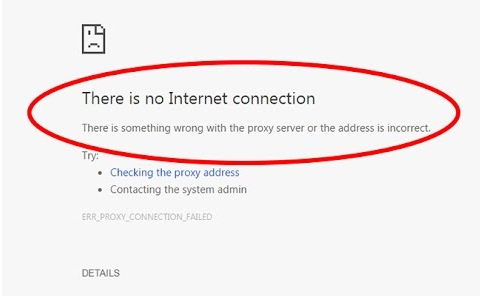By Karl Tisbe, | December 26, 2016

There is a prediction that the Internet will be shut down for 24 hours in 2017. (YouTube)
Earlier this week, news about a prediction that the Internet will shut down for 24 hours in 2017 surfaced online. In connection with this, WIRED has released a list of organizations that need donations to continue their mission "to protect the internet and your rights online."
Like Us on Facebook
The social media magazine named the American Civil Liberties Union (ACLU), the Electronic Frontier Foundation (EFF), Freedom of the Press Foundation, the TOR Project, and the Open Whisper Systems as non-profit organizations working to protect digital security and privacy.
ACLU is known for its initiatives to pass ordinances that control police use of social media and hacking. The organization aims to maintain social media and student privacy by fighting the 72nd section of Foreign Intelligence Surveillance Act and the collection of online data from tech firms. Meanwhile, the EFF aims to collaborate with tech companies for the protection, encryption, and deletion of user data vulnerable to exploitation for future policies such as surveillance and mass deportations.
The Freedom of the Press Online is focused on maintaining the rights of people to use the internet without censorship. On the other hand, the Open Whisper Systems have developed a private messenger app for Android, Chrome, and iOS that protects devices from surveillance.
Lastly, the TOR Project created an anonymity software that protects not only the messages but also the information about the sender and recipient. It is also used to dodge surveillance in countries like Iran and China. However, this project receives a large chunk of its funding from the U.S. government.
The Internet-shutting down prediction came from LogRhythm, a security vendor based in the U.S. According to the prediction, the temporary termination will not just interrupt social media accounts but also financial markets. The company's chief information security officer, James Carder said: "we saw the massive distributed denial of service against DynDNS just a couple of months ago... that DDoS attack took down sites like Twitter and Spotify for a few hours." He added that the previous events were just tests for future Internet blackout.
Likewise, Australian executive Simon Howe also predicted that mobile devices will be infested by ransomware. "Attackers will target consumers and hold their personal data hostage," he said.
-
Use of Coronavirus Pandemic Drones Raises Privacy Concerns: Drones Spread Fear, Local Officials Say

-
Coronavirus Hampers The Delivery Of Lockheed Martin F-35 Stealth Fighters For 2020

-
Instagram Speeds Up Plans to Add Account Memorialization Feature Due to COVID-19 Deaths

-
NASA: Perseverance Plans to Bring 'Mars Rock' to Earth in 2031

-
600 Dead And 3,000 In The Hospital as Iranians Believed Drinking High-Concentrations of Alcohol Can Cure The Coronavirus

-
600 Dead And 3,000 In The Hospital as Iranians Believed Drinking High-Concentrations of Alcohol Can Cure The Coronavirus

-
COVID-19: Doctors, Nurses Use Virtual Reality to Learn New Skills in Treating Coronavirus Patients







